Botany Graduate Teachers
Research Lines:
Plant Anatomy
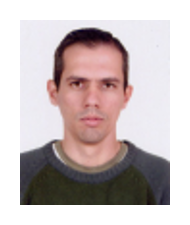
Prof. Dr Diego Demarco
My main research is on secretory structures in angiosperms and the development and evolution of flowers through various techniques of light and electron microscopies.
Contact: +55 11 3091-7593
Email: This email address is being protected from spambots. You need JavaScript enabled to view it.
CV: http://buscatextual.cnpq.br/buscatextual/visualizacv.do?id=K4770714Y3

Prof. Dra Gladys Flávia de Albuquerque Melo de Pinna
My main research interests are: i) anatomic studies and their phylogenetic implications in Caryophyllales; ii) phylogenetic perspectives on leaf development of Neotropical Rutaceae (Sapindales); and iii) Leaf ontogeny and gene expression in axillary meristems of Passiflora (Passifloraceae, Malpighiales).
Contact: +55 11 3091-7593
Email: This email address is being protected from spambots. You need JavaScript enabled to view it.
CV: http://buscatextual.cnpq.br/buscatextual/visualizacv.do?id=K4797573Z3

Prof. Dr Gregório Cardoso Tápias Ceccantini
My research topics are focused on plant anatomy, wood anatomy, dendrochronology, biology of parasitic flowering plants, paleobotany and paleoethnobotany.
Contact: +55 11 3091-7949
Email: This email address is being protected from spambots. You need JavaScript enabled to view it.
CV: http://buscatextual.cnpq.br/buscatextual/visualizacv.do?id=K4790835D6

Prof. Dr Nanuza Luiza de Menezes
Contact: +55 11 3091-7593
Email: This email address is being protected from spambots. You need JavaScript enabled to view it.
CV: http://buscatextual.cnpq.br/buscatextual/visualizacv.do?id=K4788989D2

Prof. Dr Veronica Angyalossy
Contact: +55 11 3091-7949
Email: This email address is being protected from spambots. You need JavaScript enabled to view it.
CV: http://buscatextual.cnpq.br/buscatextual/visualizacv.do?id=K4787395D2
Algae Biology
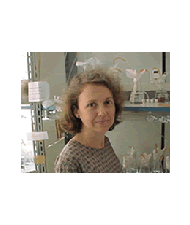
Prof. Dra Estela Maria Plastino
Intraspecific diversity in algae: physiological and genetic approaches
The major goal is to understand the intraspecific diversity of seaweeds. Laboratory cultivation is used as a tool for strain selection, in studies of color inheritance, and in tests of abiotic stress. Physiological approaches allow the characterization of strains and species, as well as the recognition of ecotypes. Population genetics is used to recognize the genetic structuring of species with wide geographical distribution.
Contact: +55 11 3091-7544
Email: This email address is being protected from spambots. You need JavaScript enabled to view it.
CV: http://buscatextual.cnpq.br/buscatextual/visualizacv.do?id=K4789730Y2
Lab Website: http://www.ib.usp.br/lam/ingindex.html

Prof. Dra Fanly Fungyi Chow Ho
My research area is related to multidisciplinary aspects of applied phycology focused in integrative physiology with functional and chemical biodiversity approaches of marine algae. The studies address physiological responses to environmental abiotic conditions and global climate change including growth, photosynthetic performance, enzymatic activity, secondary metabolites, oxidative stress and regulatory processes. Knowledge on the functional and chemical biodiversity might contribute for the potential prospection of marine algae as sources of natural products.
Contact: +55 11 3091-8068
Email: This email address is being protected from spambots. You need JavaScript enabled to view it.
CV: http://buscatextual.cnpq.br/buscatextual/visualizacv.do?id=K4779389E4
Lab Website: http://cursosextensao.usp.br/enrol/index.php?id=56
Lab Website: http://www.ib.usp.br/lam/ingindex.html
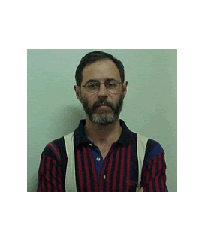
Prof. Dr Flávio A.S. Berchez
The Coastal Ecosystems Project studies primarily the structure of benthic communities in South America and how these communities are affected by global climate changes. Besides, the project develops, apply and evaluate transdisciplinary models of education directed to primary and secondary schools, related to the teaching at the natural environment.
Contact: +55 11 3091-7540
Email: This email address is being protected from spambots. You need JavaScript enabled to view it.
CV: http://buscatextual.cnpq.br/buscatextual/visualizacv.do?metodo=apresentar&id=K4785419H8
Lab Website: http://www.ib.usp.br/ecosteiros2

Prof. Dra Mariana Cabral de Oliveira
Origin, evolution and diversity of algae
Our group has primarily focused on the evolutionary history of different groups of algae (with emphasis on Rhodophyta), their interrelationships, physiology and the origin and distribution of their biological diversity. For this we combine taxonomic analysis, molecular phylogenetics and genomics.
Contact: +55 11 3091-7630
Email: This email address is being protected from spambots. You need JavaScript enabled to view it.
CV: http://buscatextual.cnpq.br/buscatextual/visualizacv.do?id=K4723276Y7
Lab Website: http://www.ib.usp.br/lam/ingindex.html
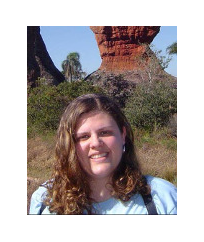
Prof. Dra Suzana Ursi
My group focuses mainly in teaching in botany and marine biodiversity, with a special attention to developing teaching tools to train both students and teachers.
Contact: +55 11 3091-7550
Email: This email address is being protected from spambots. You need JavaScript enabled to view it.
CV: http://buscatextual.cnpq.br/buscatextual/visualizacv.do?id=K4763777Y1
Lab Website: http://botanicaonline.com.br
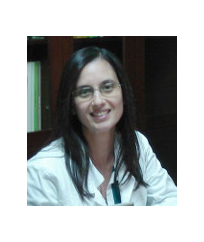
Prof. Dra Valeria Cassano
The research of interest is focused on the knowledge of the diversity of marine macroalgae and their phylogenetic relationships. The studies cover both traditional and molecular taxonomy, including the use of the DNA Barcoding technique.
Contact: +55 11 3091-7544
Email: This email address is being protected from spambots. You need JavaScript enabled to view it.
Currículo Lattes
Lab Website: http://www.ib.usp.br/lam/ingindex.html
System Biology
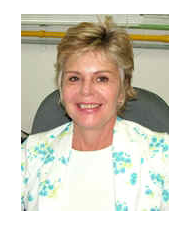
Prof. Dra Eny Iochevet Segal Floh
Our lab studies the signaling process of the regulation of growth and development in plants, both in vivo and in vitro, using cell biology, biochemistry, molecular biology and biotechnology.
Contact: +55 11 3091-7556
Email: This email address is being protected from spambots. You need JavaScript enabled to view it.
CV: http://buscatextual.cnpq.br/buscatextual/visualizacv.do?id=K4788368T5
Lab Website: http://felix.ib.usp.br/biocel/index.htm

Prof. Dr Igor Cesarino
Lignin Metabolism and Cell Wall Engineering
The group uses a systems biology approach based on transcriptomics and metabolomics to understand the molecular basis of all aspects of lignin metabolism in plants, including transcriptional regulation, biosynthesis and polymerisation. Bioengineering of lignin and secondary cell wall is used in order to reduce plant biomass recalcitrance for downstream applications.
Contact: +55 11 3091-7550
Email: This email address is being protected from spambots. You need JavaScript enabled to view it.
CV: http://buscatextual.cnpq.br/buscatextual/visualizacv.do?metodo=apresentar&id=K4139692H1
Lab Website: http://www.ib.usp.br/botanica/ligninlab/
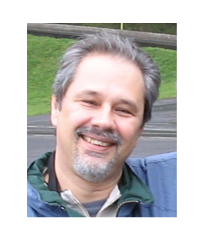
Prof. Dr Marcos Silveira Buckeridge
My group develops research on Plant Cell Wall Architecture, Degradation and Bioinformatics and on the Physiological and Biochemical Responses of Plants to the Environment. One major goal is deciphering some mechanisms of degradation and hormonal control of storage cell wall, mobilisation of xyloglucans, galactomannans, mixed linkage glucan and arabinogalactan. Recently the sugarcane and miscanthus cell wall structures have been described, with possible impacts on the comprehension of cell wall architecture of grasses. The model systems used for cell wall research are mainly tropical seeds, sugarcane and duckweed. Finally, we aim to unravel the mechanisms of responses of sugarcane, sorghum and several tropical species to elevated CO2 and drought.
Contact: +55 11 3091-7592
Email: This email address is being protected from spambots. You need JavaScript enabled to view it.
CV: http://buscatextual.cnpq.br/buscatextual/visualizacv.do?id=K4787719H3
Lab Website: http://www.lafieco.com.br
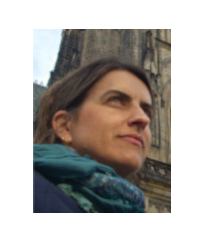
Prof. Dra Maria Magdalena Rossi
Our research group works in the identification and characterization of genetic determinants underneath yield and nutritional quality traits in crop species using tomato, Solanum lycopersicum, as model species. To reach this goal, several research lines are approached: (i) the study of genes that regulate source-sink carbon partitioning; (ii) characterization of vitamin E metabolism and its link with lipid metabolism and carbon partitioning and; (iii) senescence manipulation and fruit quality and crop yield improvement.
Email: This email address is being protected from spambots. You need JavaScript enabled to view it.
CV: http://buscatextual.cnpq.br/buscatextual/visualizacv.do?id=K4771105E9
Lab Website: http://www.ib.usp.br/botanica/gmp/en/

Prof. Dra Marie-Anne Van Sluys
My research group focuses on genomics mechanisms that contribute to the diversification of plant species. We are also interested in revealing mechanisms by which plant and microbes interact. By using genomics as a tool, we explore the role of transposable elements in the structural and functional evolution of plant genomes, the function and regulation of genes involved in DNA repair and the contribution of wild sources of germoplasm to crop species.
Contact: +55 11 3091-7759
Email: This email address is being protected from spambots. You need JavaScript enabled to view it.
CV: http://buscatextual.cnpq.br/buscatextual/visualizacv.do?id=K4787804D0
Lab Website: http://gate.ib.usp.br/GateWeb/
Plant Developmental Biology
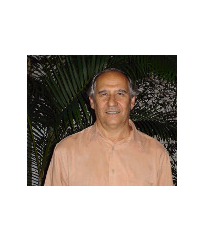
Prof. Dr Gilberto B. Kerbauy
The main goal of my lab is to understand the mechanisms that control meristematic activity and flowering of orchid plants, as well as their potential application.
Contact: +55 11 3091-7548
Email: This email address is being protected from spambots. You need JavaScript enabled to view it.
CV: http://buscatextual.cnpq.br/buscatextual/visualizacv.do?id=K4783054U3

Prof. Dra Helenice Mercier
My group studies plant development, focusing on plant hormones, nitrogen nutrition, ROS and nitric oxide signaling and CAM metabolism. Effects of drought and urea nutrition on water transport and urea transport through aquaporins are also investigated. The group uses bromeliads as model systems.
Contact: +55 11 3091-8066
Email: This email address is being protected from spambots. You need JavaScript enabled to view it.
CV: http://buscatextual.cnpq.br/buscatextual/visualizacv.do?id=K4786644T5

Prof. Dr Luciano Freschi
Plant signaling mechanisms in response to the environment
My group uses physiological, biochemical and molecular biology approaches to dissect the complex
signaling cascades responsible for coordinating plant development and metabolism in a constantly
changing environment. Signaling events triggered by changes in light, water and nutrient availability
are investigated and manipulated in order to provide insights on alternative strategies to generate
plants with higher stress resistance and/or improved nutritional features.
Contact: +55 11 3091-8068
Email: This email address is being protected from spambots. You need JavaScript enabled to view it.
Economic Botany

Prof. Dr. Antonio Salatino
My group performs research on chemical ecology, chemotaxonomy and molecular systematics of plants. In addition, research on applied botany focuses on natural waxes, medicinal plants, flavonoids and propolis.
Contact: +55 11 3091-8067
Email: This email address is being protected from spambots. You need JavaScript enabled to view it.
CV: http://buscatextual.cnpq.br/buscatextual/visualizacv.do?id=K4787202J5

Prof. Dra Claudia Maria Furlan
Phenolic Compounds
My group works on the identification and quantification of natural products, with a major focus on phenolic compounds. Two aspects are of our interest: 1. How abiotic (ozone, higher concentrations of CO2) and biotic (plant parasitism and herbivory) stresses could influence the composition and contents of plant phenolic compounds (phenylpropanoids, flavonoids and tannins); 2. Chemical characterization of native Angiosperms with the aim to identify potentially bioactive natural products.
Contact: +55 11 3091-8065
Email: This email address is being protected from spambots. You need JavaScript enabled to view it.
CV: http://buscatextual.cnpq.br/buscatextual/visualizacv.do?id=K4771191A3
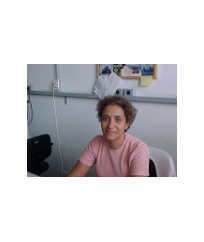
Prof. Dra Deborah Yara Alves Cursino dos Santos
Our group analyzes the influence of biotic and abiotic factors on the plant metabolism, besides the pursuit of bioactive compounds focused on ecological and economic approachs. Usual techniques of natural products analysis and biochemistry are used looking forward signaling molecules and secondary metabolites, prioritizing native species.
Contact: +55 11 3091-8065
Email: This email address is being protected from spambots. You need JavaScript enabled to view it.
Currículo Lattes

Prof. Dr Marcelo José Pena Ferreira
Natural Products from Plants and Microorganisms
The group studies and describes the metabolome of native plants and endophytic microorganisms, including aspects of isolation, structure elucidation, biosynthesis, bioactivity and biotransformation of the produced secondary metabolites.
Contact: +55 11 3091-7546
Email: This email address is being protected from spambots. You need JavaScript enabled to view it.
CV: http://buscatextual.cnpq.br/buscatextual/visualizacv.do?metodo=apresentar&id=K4768071U1

Prof. Dra Maria Luiza Faria Salatino
The research in my group is focused on i) chemotaxonomy, chemical ecology and molecular systematics of native plant species; and ii) chemical characterization of cuticular waxes, flavonoids and alkanes. Recently, the group incorporated another research topic based on the chemical characterization of propolis and isolation of its bioactive compounds.
Contact: +55 11 3091-8067
Email: This email address is being protected from spambots. You need JavaScript enabled to view it.
CV: http://buscatextual.cnpq.br/buscatextual/visualizacv.do?id=K4787461D5
Systematics, Evolution and Biogeography of Vascular Plants

Prof. Dr Jerfferson Prado
My research and of my students treat on taxonomy, phylogeny, and evolution of neotropical ferns and lycophytes and we have been carrying out several works in collaboration with Brazilian and foreign researchers. We have been worked mainly on the families Dryopteridacea, Pteridaceae, and Polypodiaceae. We also work on Botanical Nomenclature.
Email: This email address is being protected from spambots. You need JavaScript enabled to view it.
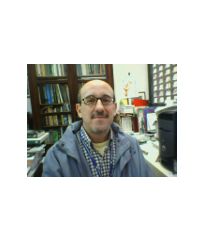
Prof. Dr José Rubens Pirani
Full Professor. Main research lines: 1. Systematics, evolution and diversification of the Sapindales order, with special reference to the families Rutaceae and Simaroubaceae; 2. Flora, physiognomy, biogeography and macroevolution of the Brazilian montane vegetation of Brazil, especially the Espinhaço Range in Minas Gerais and Bahia states. Both research lines entail integrative analysis of biological and structural data with molecular evidence.
Contact: +55 11 3091-7595
Email: This email address is being protected from spambots. You need JavaScript enabled to view it.
Currículo Lattes

Prof. Dra Lúcia Garcez Lohmann
Diversification and biogeography of Neotropical Plants
My research group seeks to understand the processes that shaped the history of diversification and biogeography in the Neotropics. Our research is highly integrative, combining components of classic taxonomy, molecular phylogenetics, ecology, evolutionary biology, and conservation. Most of our research focuses in the plant family Bignoniaceae, a key component of Tropical Forests.
Phone: +55 11 3091-8069
Email: This email address is being protected from spambots. You need JavaScript enabled to view it.
CV: http://buscatextual.cnpq.br/buscatextual/visualizacv.do?id=K4798650U8

Prof. Dr. Paulo Eduardo De Oliveira
He has experience in the field of Ecology and Botany, with emphasis on micropalentology, palynology, general ecology and studies of Brazilian vegetation focusing on the following topics: cenozoic palynology Brazilian ecosystems, paleoecology, limnology. In his research he uses pollen grains and other palynomorphs, as well as diatom frustules in paleoecological and climatic variations studies and water quality analyzes.
Contact: +55 11 2648-0871
Email: This email address is being protected from spambots. You need JavaScript enabled to view it.
CV: http://buscatextual.cnpq.br/buscatextual/visualizacv.do?id=K4781406H2
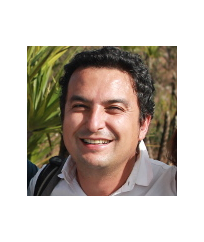
Prof. Dr Paulo Takeo Sano
Diversity and Conservation of the Neotropical Flora: Eriocaulaceae (Poales)
My research field is Plant Systematics, with focus on Biodiversity Conservation, and Environmental Education, applying an Ethnobotanical approach. Systematics studies, particularly diversity and evolution, are focused on monocot species. Since 1999, my group has been working on conservation projects in high elevation areas, with special attention to Eriocaulaceae, which occurs mainly in this type of environment, known as “campos rupestres”. The group has also carried out research with local communities, focused on their environmental perception on high elevation areas and its biodiversity, engaging local and scientific knowledge.
Contact: +55 11 3091-8070
Email: This email address is being protected from spambots. You need JavaScript enabled to view it.
CV: http://buscatextual.cnpq.br/buscatextual/visualizacv.do?id=K4723528U1
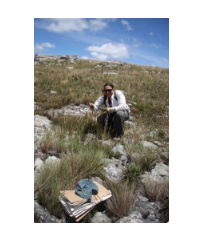
Prof. Dra Rafaela Campostrini Forzza
My research focuses on Botany, with emphasis on Systematics of Angiosperms, Conservation, Floristic Inventories and evolutionary studies in Bromeliaceae, especially in areas of vegetation and inselbergues.
Contact: +55 21 3204-2130
Email: This email address is being protected from spambots. You need JavaScript enabled to view it.
Currículo Lattes







